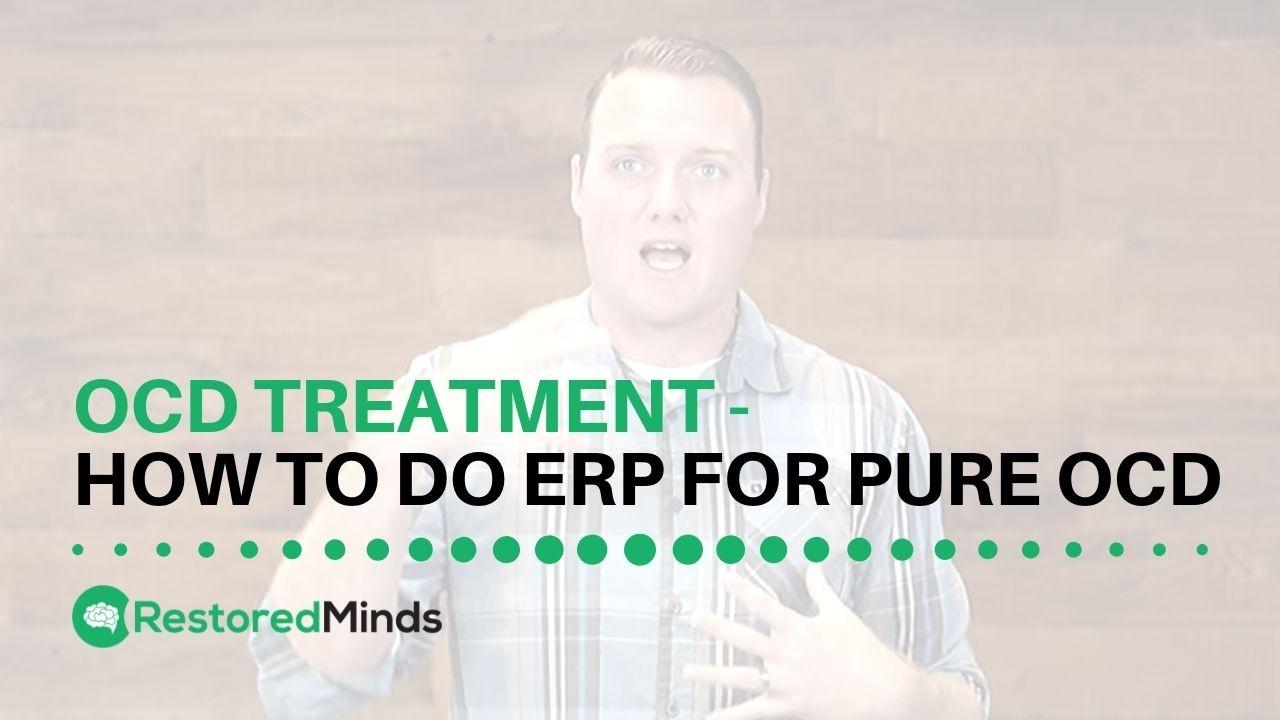OCD Treatment - How to do ERP for Pure OCD
Aug 21, 2018
Title: Understanding and Implementing ERP for Pure OCD: A Comprehensive Guide
Introduction: Welcome to Restored Minds! I'm Matt Cotti, a licensed clinical social worker and the founder of the OCD Academy. Today, we're delving into a topic that frequently prompts questions—Exposure and Response Prevention (ERP) for Pure OCD. If you have obsessions without apparent compulsions and wonder how ERP applies to you, this guide is for you.
What is Pure OCD? Pure OCD, often referred to as "Pure O," is characterized by intrusive, unwanted thoughts (obsessions) without visible compulsions. However, as I've discovered in my practice, most individuals with Pure OCD perform mental compulsions, such as thought suppression, checking, analyzing, and more.
Understanding ERP: ERP is a structured therapeutic approach designed to help individuals face their fears and reduce their compulsive behaviors. While it might seem challenging to apply ERP when dealing with mental compulsions, the principles remain the same.
Common Mental Compulsions:
-
Thought Suppression:
Trying to forcefully push intrusive thoughts away.
-
Thought Checking:
Repeatedly revisiting thoughts to analyze their significance.
-
Praying:
While prayer can be a healthy spiritual practice, using it compulsively to neutralize anxiety reinforces OCD.
-
Counting:
Mentally counting to avoid or dismiss obsessions.
Steps to Conduct ERP for Pure OCD:
-
Identify Obsessions and Compulsions:
-
Use the free compulsion inventory available
. Identifying mental compulsions is crucial for success.
-
-
Experience the Thoughts:
-
Allow intrusive thoughts to be present without attempting to neutralize or avoid them.
-
-
Prevent Compulsive Responses:
-
Recognize when you’re engaging in compulsions. Whether it's analyzing, praying compulsively, or any other mental act, resist the urge.
-
-
Habituate to Anxiety:
-
Over time, exposure to these thoughts without engaging in compulsions will reduce the anxiety they provoke.
-
Example of ERP for Existential Obsessions: Consider someone obsessed with existential thoughts like "What if God doesn't exist?" They might avoid situations triggering these thoughts or engage in compulsive prayers.
Steps to Manage This:
-
Exposure:
Allow the thought "What if God doesn't exist?" to be present without engaging in rituals or compulsive prayer.
-
Response Prevention:
distinguish between faith-based prayer and compulsive prayer. Aim to refrain from praying to neutralize your anxiety surrounding the thought.
Wrapping Up: Understanding and applying ERP to Pure OCD can be life-changing. Identify your mental compulsions, face your fears, and resist compulsive behaviors. This process leads to long-term relief and helps break the loop of OCD.
For a more detailed guide on identifying compulsions, visit our site and download your free compulsion inventory here. Also, check out our masterclass, where I delve deeper into setting up ERP hierarchies and guide you through the recovery process.
Conclusion: Thank you for joining us today. If you found this information helpful, please like, subscribe, and share this post. If you have any topics or questions you’d like covered in future episodes, leave a comment below.


